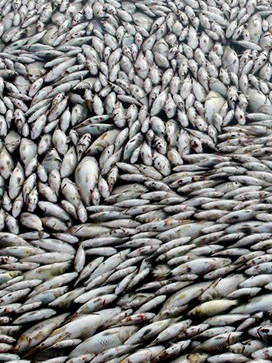Fish plan released
 Federal Water Minister David Littleproud has announced the Native Fish Emergency Response Plan for the 2019–20 Summer, to help protect native fish populations from mass fish kills.
Federal Water Minister David Littleproud has announced the Native Fish Emergency Response Plan for the 2019–20 Summer, to help protect native fish populations from mass fish kills.
The plan includes up to $300,000 for states to manage extreme fish death events, maintaining a database to register fish kills and providing water to mitigate the emergency.
Experts say fish deaths will still likely occur due to low flows and hot weather.
Professor Lesley Head from University of Melbourne and Professor Sue Jackson from Griffith University have issued a joint statement on the plan.
“The Native Fish Emergency Response Plan 2019-20 is welcome, but emergency responses will become the norm rather than the exception unless the longer-term issues depleting river health are addressed,” it says.
“The most significant of these longer-term drivers is excess upstream diversion of water for irrigation (as concluded by The Academy of Science panel, of which we were both members).
“The Native Fish Emergency Response Plan 2019-20 identifies the lower Darling as a crucial drought refuge for native fish. Yet our research shows that the lower Darling has been systematically dewatered by State and Federal government decisions for more than a century.
“The native title rights of Barkandji people, and their desperate pleas to save the Darling, have been consistently ignored over these years. It is past time to turn this around.”
The experts criticised the Minister for celebrating handing over responsibility for proposed fish hatcheries in Menindee and St George to ‘our First Australians’, “as though it is a profound act of recognition”.
“Rather, in the absence of systemic action to improve river health, they are being asked to smooth the dying pillow of their own Country,” their statement reads.
Mr Littleproud’s announcement came just days after a mass fish kill event was spotted in far western NSW.








 Print
Print